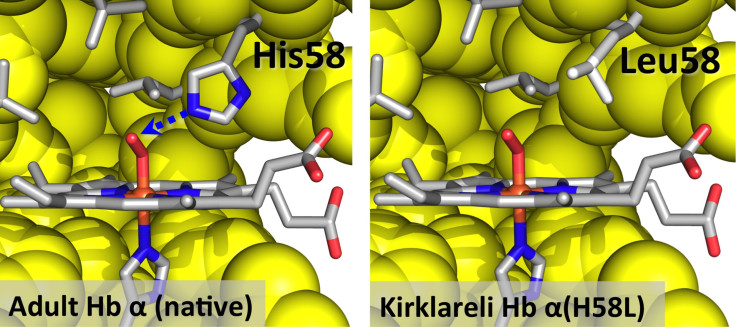Smoking Cigarettes May Prevent Anemia, Plus Nicotine Benefits For Schizophrenia, Parkinson's Disease

Smoking cigarettes has long been proven to cause numerous deadly diseases, but there are also rare circumstances under which it can actually serve as medicine.
Scientists have recently uncovered one such situation: a father and daughter in Germany with an anemia-causing genetic mutation. According to a study in The Journal of Biological Chemistry, the dad, who is originally from Turkey, is a smoker while his daughter is not. Both have a genetic mutation that affects their hemoglobin, which is the protein in the blood that carries oxygen around the body. But while the daughter’s mutation led to anemia, the father’s did not.
Read: Who Quits Smoking? Race and Sexuality Play a Role
One of the most obvious signs of anemia is feeling weak, tired and cold all the time. It happens when there aren’t enough red blood cells to carry oxygen throughout the body, whether because your body isn’t making enough of them or because they are damaged in some way — due to factors that include abnormal hemoglobin or being deficient in iron, which is needed to make hemoglobin.
According to Rice University, one of the institutions involved in solving the medical mystery, in the case of the German woman, her genetic mutation was causing her hemoglobin to degrade in a process similar to how oxygen corrodes metal and turns it to rust, and so her red blood cells were not properly circulating oxygen through her body. The reason her father was not also anemic? Cigarettes.
“Absorbing carbon monoxide from cigarette smoke is therapeutic for those with this rare genetic disorder,” the university said, because their hemoglobin is more attracted to carbon monoxide than oxygen and the CO prevents the protein from becoming damaged through oxidation.
As an added bonus, people with this condition are more resistant to carbon monoxide poisoning, a potentially deadly condition.
The father “may never be an athlete because his blood can’t carry as much oxygen, but smoking has prevented him from being anemic,” Rice professor and biochemist John Olson said in the university statement. He worked with researchers in France and Germany to uncover that answer, but still suggested the daughter not smoke cigarettes if her anemia is not severe. “But she could take antioxidants, such as a lot of vitamin C, which would help prevent oxidation of her mutant hemoglobin. … At the same time, she shouldn’t worry too much about secondhand smoke, which might have a positive effect.”
It’s not the only case in which smoking cigarettes has been suggested to have a positive effect on certain medical conditions. One recent study showed that the addictive nicotine in cigarettes can boost a part of the brain that becomes sluggish in schizophrenia patients, causing memory problems and issues with decision-making. Researchers found that the chemical in cigarettes acts on certain brain receptors and helps to restore cognitive function and normalize the brain.
Parkinson's disease also appears to be associated with benefits from smoking. Neurology Advisor reported that “active smokers have the lowest PD risk, followed by former smokers, while people who have never smoked have the highest risk.” Nicotine can be an effective treatment for Parkinson's disease symptoms, too.
Still, smoking cigarettes remains dangerous for the majority of people. According to the Centers for Disease Control and Prevention, about 6 million people around the world die every year from tobacco use, which is the “leading cause of preventable death.” Most smokers live 10 years fewer than non-smokers, in part because smoking “leads to disease and disability and harms nearly every organ of the body.” Those diseases include cancers, heart disease, stroke, diabetes, and lung diseases like emphysema.
Source: Olson JS, Bissé E, Schaeffer-Reiss C, et al. Hemoglobin Kirklareli (α H58L), a New Variant Associated with Fe Deficiency and Increased CO Binding. The Journal of Biological Chemistry. 2017.
See also:
Published by Medicaldaily.com



























